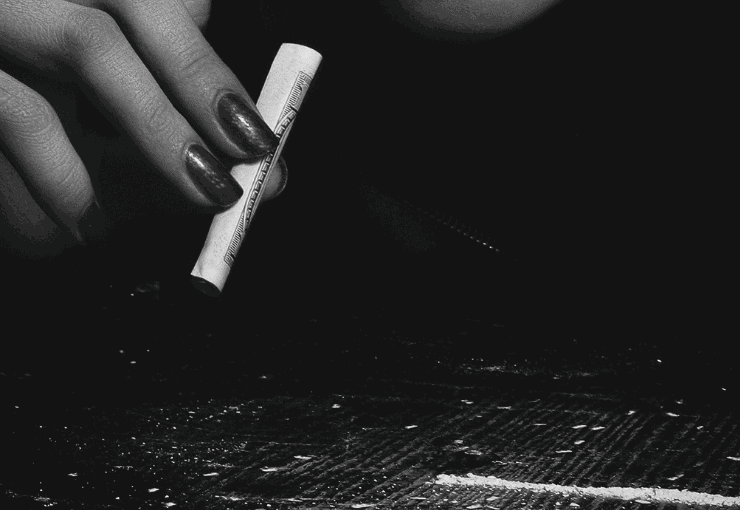What is Heroin? Heroin is one of the most addictive, deadliest drugs on the market and negatively impacts the lives of thousands of individuals every year. Although it can be difficult to realize your loved one has an addiction to heroin, they might exhibit key signs showing that they are suffering from an addiction problem. Learning how to identify these signs is imperative so you can help them find the correct addiction treatment program needed to save their life. The Centers for Disease Control (CDC) reports that nearly 841,000 people have died from an overdose since 1991, the majority dying at the hand of opiates such as heroin.
What is Heroin?
Heroin is an extremely addictive drug deriving from the opium poppy plant. A significant amount of heroin is produced in the “golden triangle” of Southeast Asia, an area known for opium cultivation and trafficking, then consequently smuggled into various countries across the world including Mexico and the United States. Heroin will usually come in the form of a white or tan powder as well as a black, tar-like, sticky substance depending on how the drug was manufactured. It is often mixed with fentanyl, an extremely deadly synthetic opioid, used to increase the potency of heroin which has had a significant impact on the number of overdoses in the last ten years. In recent years overdoses have skyrocketed, 2020 being the deadliest year on record thus far. The CDC reports there were over 93,000 drug overdoses, the highest amount in U.S history.

How does Heroin work?
Heroin is classified as an opiate and works by activating mu-opioid receptors in the brain. When chemicals in the human body called neurotransmitters bind to these receptors, it will produce the sensational feeling of euphoria by releasing the neurotransmitter called dopamine in the brain. Although heroin helps activate the reward system in the brain and is responsible for producing pleasurable feelings, it also works to suppress certain areas and vital functions of the central nervous system such as heart rate and blood pressure. Heroin can be smoked or snorted depending on the user although the most common and preferred method of consumption is heroin being intravenously injected into the user’s bloodstream. This allows much more of the drug to go directly to the brain, resulting in an immensely stronger high.
Signs of Heroin Abuse
When an individual becomes addicted to heroin, changes in his or her physical appearance, social life, family involvement, and brain can happen rapidly. Drug addiction, specifically heroin addiction, is a chronic disease that can have devastating, life-changing effects not only on the user but also on the family involved. Being able to identify signs that your loved one is suffering from addiction is important so that you can help them find the appropriate addiction treatment program that is right for them. Addiction rehab programs can be exceptionally beneficial, helping users regain their sobriety and develop healthy habits to live a life free of substance abuse. If an individual starts to exhibit any of the following signs, consider seeking out medical attention and getting them the help they need.
- Anxiety
- Abrubt weight loss
- Avoiding friends or family
- Paranoia
- Hallucinations
- Lying
- Irratability
- Agitation
- Stealing
- Borrowing money repeatedly
- Track marks from injection
- Picking and scabbing
- Extreme happiness
- Dialated pupils
- Finding drug parphelnilia
- Itching
- Nodding off
Heroin withdrawal
When an individual begins to experience heroin withdrawal, they often relapse and begin using the substance again due to the nature and severity of the withdrawals. Relapse is very common among addicts and in a way has become part of the process of healing. Trying to quit heroin “cold turkey” without the help of professionals is dangerous and is not recommended. Finding the appropriate treatment program whether it is inpatient or outpatient will significantly increase your chances of safely getting through the withdrawal process and remaining sober. Withdrawal symptoms range from moderate to severe depending on a few factors such as how long the drug was abused, at which rate, and how much was consumed. Heroin withdrawal is extremely uncomfortable and in some cases life-threatening. Seeking medical attention is highly recommended when experiencing any of the following symptoms:
- Nausea
- Abdominal cramps
- Tearing
- Runny nose
- Sweats
- Chills
- Yawning a lot
- Muscle and bone aches
Moderate withdrawal symptoms:
- Vomiting
- Diarrhea
- Agitation
- Restlessness
- Tremors
- Trouble concentrating
- Goose bumps
- Fatigue
Severe withdrawal symptoms:
- Anxiety
- Insomnia
- Depression
- Hypertension
- Rapid heart rate
- Muscle spasms
- Impaired respiration
- Difficulty feeling pleasure
- Drug cravings

Treatment options for heroin addiction
When dealing with an addiction to a drug as strong as heroin, finding the most effective and efficient addiction treatment programs is important. With addiction and mental health both being hot topics in the United States these days, there are an extensive amount of resources available to get the help you need.
Getting sober from heroin generally consists of three steps. First and foremost, find a detox program to safely go through the withdrawal process. At a detox facility, medical staff will be present to ensure that you are as comfortable as possible due to the fact withdrawal, especially from heroin, can be extremely uncomfortable. Detox usually lasts 7-10 days but can be extended if necessary as everyone is different.
The next step after successfully completing detox is finding an inpatient or outpatient treatment program that best suits you. There are many different types of programs available that focus on a variety of healing methodologies. Some may incorporate equine therapy, outdoor activities, or focus on relaxation. Common practices generally found at most treatment centers will include therapy, counseling, and healing.
Both inpatient and outpatient addiction treatment programs have their own benefits. If you’re looking for a more structured, thorough program where you live at the facility for an extended period of time, inpatient will be best for you. Inpatient treatment programs generally last for 30 days. Outpatient programs are not as structured when compared to inpatient, consisting of showing up to counseling and therapy sessions 2-3 times a week and not require you to live at the facility. This type of treatment gives you the freedom to still take care of family or work responsibilities while allowing you to receive help with your addiction. Outpatient treatment programs can last anywhere from 2 months up to a year depending on the individual.
The last step is coming up with an effective aftercare plan. Developing an aftercare plan for individuals who complete detox and an addiction treatment program is beneficial to help prevent relapse. Sober living, counseling, and attending group therapy such as narcotics anonymous (NA) or alcoholics anonymous (AA) are all components of aftercare. At Knoxville Recovery, our certified and experienced staff will help guide clients through our addiction programs and introduce appropriate aftercare plans designed specifically for our clients, helping to provide them with the best shot possible at continuing their achieved sobriety after treatment.
If you have a loved one currently suffering from any type of addiction, please feel free to reach out today. Knoxville Recovery was founded for people in recovery, by people in recovery. We understand how problematic addiction can be and what it takes to live a life full of sobriety, the life you deserve.






